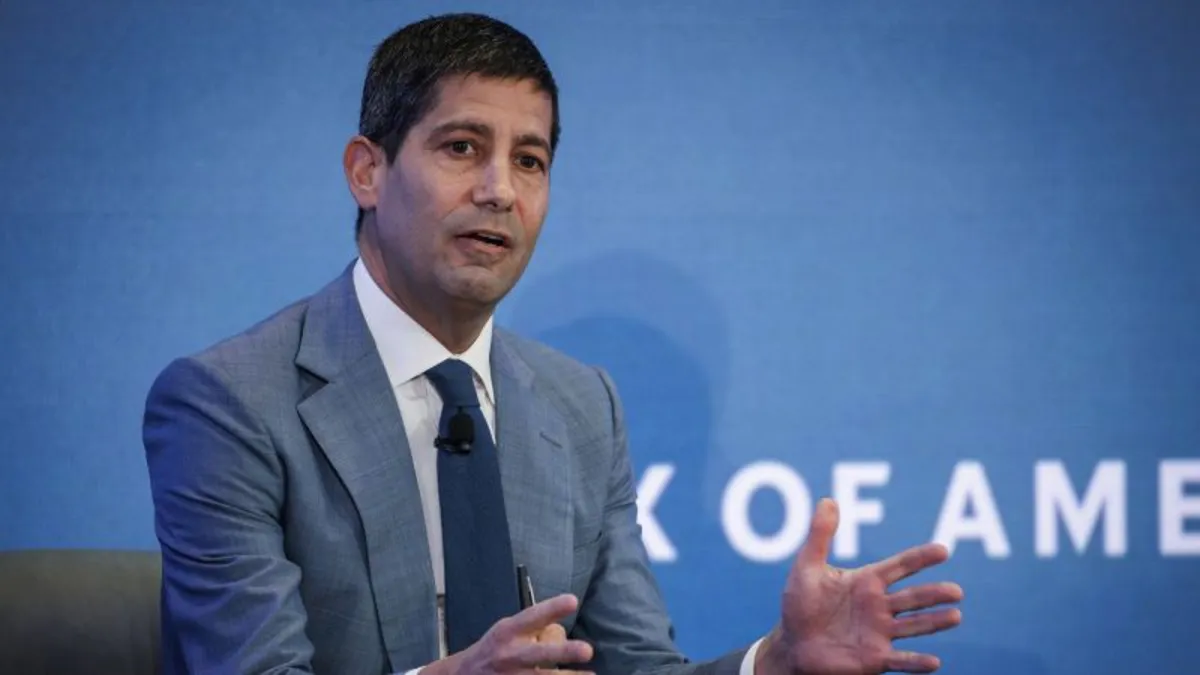
On Thursday, President Donald Trump once again expressed his strong disapproval of Federal Reserve Chair Jerome Powell, stating that Powell’s “termination can’t come fast enough.” During an event in the Oval Office, Trump asserted that Powell would “be out of there real fast” if he desired. This situation raises questions about the president's authority to dismiss the Fed chair, a power that many experts argue does not exist solely based on policy disagreements. Nonetheless, Trump has signaled a willingness to deviate from traditional norms, even amidst potential significant consequences.
The leading candidate to replace Powell, whether at the conclusion of his term in May 2026 or potentially sooner, is reportedly Kevin Warsh. Warsh, a former Fed governor, was previously considered for the position of Treasury Secretary during Trump’s second term and was also a contender for the top Fed post during Trump’s first term. According to reports from CNN, Warsh is once again on Trump’s shortlist to assume the role of Fed chair once Powell’s tenure comes to an end.
Interestingly, Trump’s selection of Scott Bessent to lead the Treasury Department is viewed by many as a strategic move to keep Warsh in consideration for a future appointment as Fed chair. Bessent mentioned to Bloomberg earlier this week that the administration plans to begin interviewing candidates for Powell’s successor “sometime in the fall.” Amid ongoing speculation regarding Trump’s intentions to potentially remove Powell before his term concludes, Bessent remarked that “monetary policy is a jewel box that’s got to be preserved.”
At 55 years old, Kevin Warsh has a notable background in finance and economic policy. Before his time at the Fed, he served as a vice president and executive director at Morgan Stanley in the mergers and acquisitions division. He also held the position of special assistant to then-President George Bush for economic policy and worked as the executive secretary at the National Economic Council. Notably, like Powell, Warsh does not hold a graduate degree in economics, having graduated from Harvard Law School in 1995.
Warsh was appointed to the Fed’s Board of Governors in 2006 and served during the challenging period of the Great Recession, acting as the chief liaison to Wall Street. His role included coordinating the sale of Bear Stearns to JPMorgan Chase, but he also faced criticism for allowing Lehman Brothers to collapse in 2008, a pivotal moment for global financial markets. Warsh left the Fed in 2011 after publicly opposing the central bank's plan to inject $600 billion into the economy through bond purchases.
More recently, Warsh participated in advising Trump’s transition team on economic policy following the November election. In a January op-ed for The Wall Street Journal, he criticized the Fed for permitting inflation to rise significantly during and after the pandemic. Currently, Warsh serves as a distinguished economics fellow at the Hoover Institution, a conservative think tank, and is a visiting scholar at Stanford University’s Graduate School of Business. Additionally, he holds a position on the nonpartisan Congressional Budget Office’s advisory panel.
Warsh, who is married to billionaire Jane Lauder, granddaughter of cosmetics mogul Estée Lauder, has been vocal about his perspectives on economic events and the Federal Reserve. In his Wall Street Journal article, he argued that high inflation rates stemmed from “a government that spent too much and a central bank that printed too much.” However, many mainstream economists attribute the inflation surge in 2021 primarily to pandemic-induced disruptions in supply and demand.
In interviews, including one with Fox Business ahead of the Fed’s recent policy meeting, Warsh commented on the economic turbulence caused by Trump’s tariff policies, indicating that the economy is “transitioning.” He stated, “The president inherited a fiscal and economic and regulatory mess, and it’s going to take a little digging out to be on a stronger platform for growth.” Furthermore, Warsh suggested that “inflation is a choice, and the Fed has made a lot of bad choices over these last several years,” emphasizing that the president must act to combat inflation by reducing government spending.